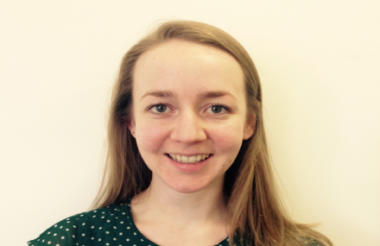Big charities have the clout and small charities have the support. So what are mid-sized charities to do in the face of more restrictive fundraising regulation, asks Abigail Betts.
Like many other fundraisers, my initial reaction to the Etherington Review and ensuing changes has been one of apprehension. That’s not because I don’t believe in the need for clearer regulation, the absolute highest standards of best practice, the protection of the vulnerable, or in turning around public trust in the sector. That goes without saying. This apprehension stems from the size of organisation I represent – worries around how we will manage the changes with limited budgets, capacity, and resource (even staying up-todate with the discussions has been a struggle). And, ultimately, worries about how this will impact those we are working alongside around the world.
To give you an idea of our size, Health Poverty Action is currently a £15m organisation and more than 90 per cent of our income is institutional. The small remainder comes from fundraising, with a third of this from individual donors. We are all aware of the restrictions of institutional funding and the crucial importance of voluntary fundraising in sustaining organisations, by, for example, enabling growth by investing in staff or by piloting new work.
So Health Poverty Action doesn’t fall into the top 50 charities, but nor do we sit under the umbrella of the Small Charities Coalition, both neatly positioned at either end of our vast sector and therefore involved in much of the early discussion on regulation.
Have we, and the thousands of other organisations which sit in the middle, fallen through the cracks? To me, it feels like many of the changes are going to have a disproportionate impact on our size of organisations. We are not small enough to qualify for some of the possible exemptions under discussion, nor big enough to have the budgets, resource and capacity to take risks to diversify our income and absorb the changes without a detrimental impact on our work and those we work with.
The discussion has already moved very rapidly, without time for many organisations to fully consider the impact of the regulations and engage in the process in thoughtful ways. This is especially the case for organisations in the middle, without a representative group or the capacity to consult at speed, but we need this breadth of input to ensure the resulting regulations are truly robust – for the sake of our donors, the public, and the causes we exist to support. The regulations need to embrace the full diversity of the sector – with all its many nuances – and ensure the crosssection of voices are heard.
I have been part of a group of fundraisers seeking to ensure the voice of those of us left in the middle is represented going forwards. We met with George Kidd and (two of) the Fundraising Preference Service working group during the consultation period, giving us the opportunity to discuss some of the possible unintended consequences of the changes, and their potential impact. For example, as some channels of fundraising – such as cold direct mail and calling – are moved away from, will others in turn become saturated? How will organisations with comparatively small budgets continue to use donations effectively if they are pushed out into new and untested channels? And, in all of this, what impact might these unintended consequences have on the public? Will unaddressed mail, poverty-porn-style advertising, and street fundraising increase dramatically, and what might the repercussions of this be over the coming years?
We need to remember that many organisations work to support the most vulnerable in society but these voices are those that have not yet been heard. For me, it’s about both the donor and the communities Health Poverty Action is working alongside – the traditional birth attendant in Myanmar helping mothers give birth safely; the counsellor in Guatemala educating women on their rights related to gender-based violence. The relationship between our donors and these communities is a very special one, one which we must continually and carefully balance. Let’s hope that we don’t lose any of the great organisations striving to do this along the way.
Abigail Betts is head of fundraising at Health Poverty Action









